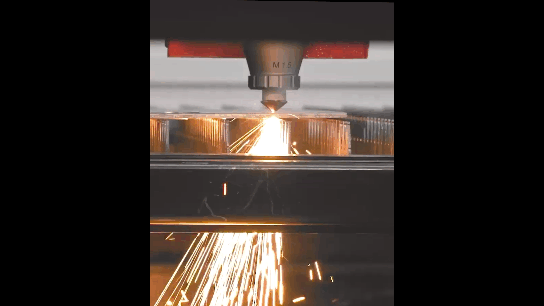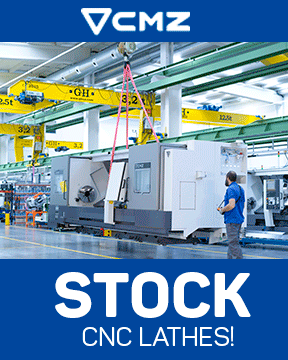FANUC UK’s hottest automation trends for 2024
Published:

Could 2024 be the year that UK manufacturers finally embrace robotics? After trailing behind our international counterparts for years, the UK is now starting to catch up when it comes to the installation of industrial robotics. Across all sectors – from traditional automation users such as automotive and electronics to new adopters including food & beverage and logistics – manufacturing firms are breaking down longstanding barriers to automation, leading the International Federation of Robotics to predict ‘strong growth’ in the number of UK robot installations.
No longer seen as expensive, complicated or inflexible, today’s automated solutions are affordable, agile, easy to operate, and smaller than ever. And with the advent of smart features such as integrated vision systems and real-time energy reduction functionality, they are helping manufacturers to streamline their operations, increase their productivity and plug the labour gap better than ever before.
Here, seven experts from leading robotics manufacturer FANUC UK share their views on the hottest automation trends to look out for in 2024…
Energy-efficient solutions
“One of the major trends in automation is definitely energy efficiency. Aside from its primary function, a key requirement for any automation solution will be its ability to stabilise energy consumption and reduce it as low as possible. Being able to evidence this through live data monitoring and enhanced reporting will also be vital for any manufacturer serious about reaching net zero.”
Joe Mumby, Technical Sales Manager (ROBOSHOT)
Application-specific software
“I believe we’ll start to see an increase in bespoke application-specific software throughout 2024. This will not only make it easier for customers and system integrators when it comes to programming, but will also improve traceability compared to operations that are conducted manually.”
Paul Richards, Global Customer Coordinator (Cobots)
New and improved features
“We’re already seeing upgrades to existing products, giving greater functionality and allowing users to reduce downtime even further. This trend will continue throughout 2024; for example, with the launch of our brand-new ROBODRILL model with 28-tool capacity and extended Y-axis stroke of 500mm. Offering more tools and more features, it will provide an increase in both flexibility and productivity.”
Andy Harvey, Applications Engineer
Smart functionality
“With the constant improvements in intelligent robot systems, I expect more industrial automation users to adopt functions such as vision and force control. These functions give the robot the ability to see and feel, allowing them to do much more complex but sometimes repetitive automated tasks, which will help to free up valuable human employees.”
Paul Coombes, Technical Sales Support Manager
Education, education, education
“We are seeing more and more young people becoming familiar with robotics, and interested in engineering generally. Initiatives such as the FANUC Training Academy, work experience programmes, apprenticeships, and competitions such as WorldSkills UK will help to increase awareness and participation further, ensuring we have a strong pipeline of talent to secure the future of UK manufacturing.”
Satty Cole, Business Development Manager (FANUC Academy)
Less manual handling
“In the face of unprecedented labour shortages right across the manufacturing sector, but particularly within food & beverage, manufacturers are looking to remove manual handling wherever possible. I therefore expect to see continued uptake of robotics wherever products are required to be moved from one stage of the production process to another. There will also be an increased use of autonomous robot vehicles to move stock around the factory, and for loading/unloading. Not only does this help with current staffing challenges, but a reduction in manual lifting, carrying, packing and palletising will improve health and safety outcomes for employees, too.”
Paul Carter, Sales Manager System Automation – Robotics
Flying high
“In terms of UK automation uptake to date, the automotive industry has led the way. But other sectors are catching up, not least aerospace. In 2024, we’ll be continuing to innovate and develop new products to support the aerospace industry to continue its automation transformation.”
Dan Fisher, Partner Sales Manager
Quick Links
Published By
4 Mayfair Court
Cleethorpes
South Humberside
North East Lincolnshire
DN35 0QG
© Copyright Roger Barber Publishing , all rights reserved.
Terms and Conditions apply. This website uses cookies, click here for blocking details. Our Privacy Policy is available here.





